50+ SAMPLE Book Reviews
-
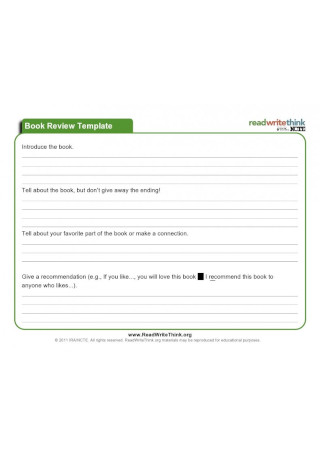
Book Review Template
download now -
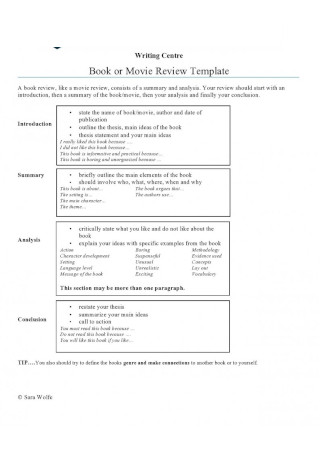
Book or Movie Review Template
download now -
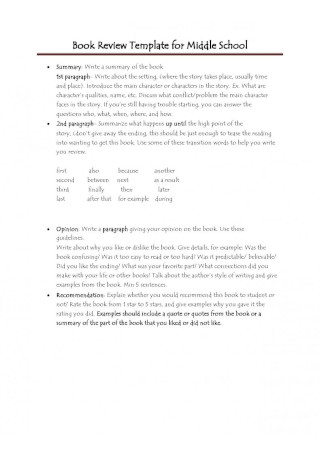
Book Review Template for Middle School
download now -
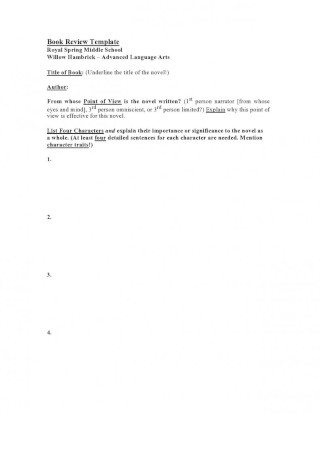
Sample Book Review Template
download now -
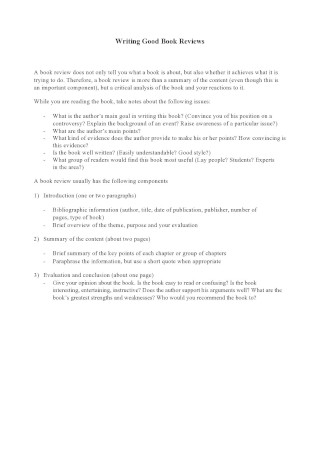
Book Review Guide
download now -
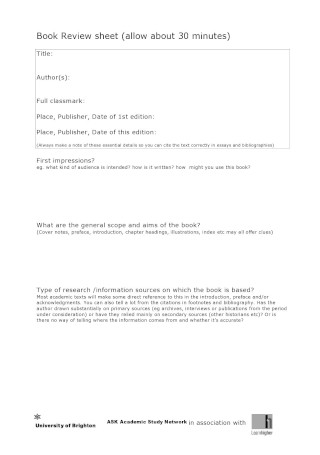
Book Review Sheet
download now -
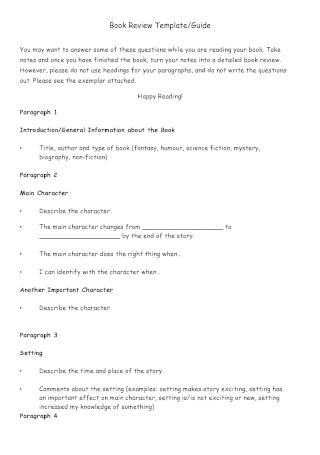
Book Review Template /Guide
download now -
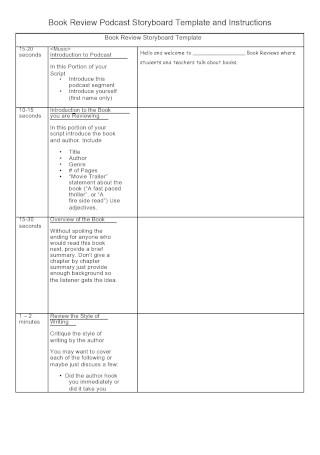
Book Review Podcast
download now -
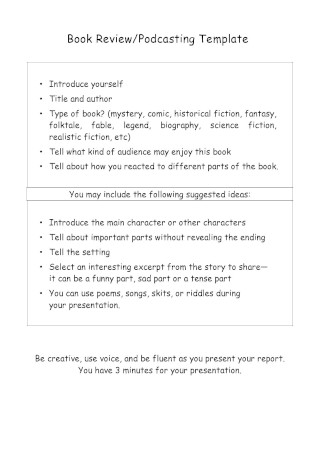
Book Review/ Podcasting Template
download now -
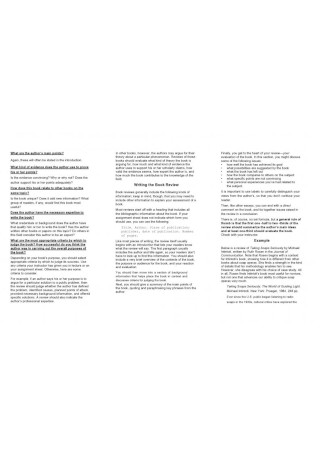
Sample Book Review
download now -
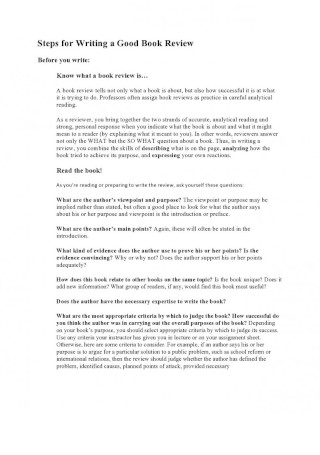
Guide for Book Review
download now -
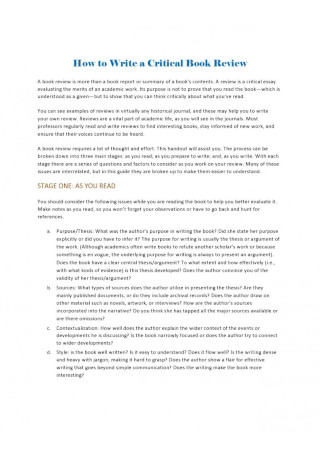
Critical Book Review
download now -
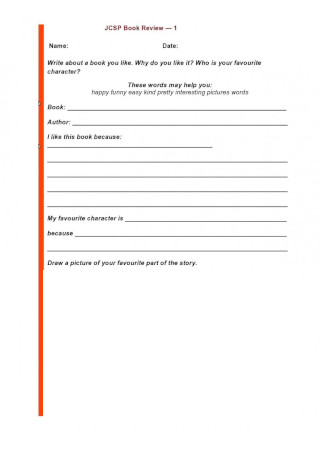
Book Review Form
download now -
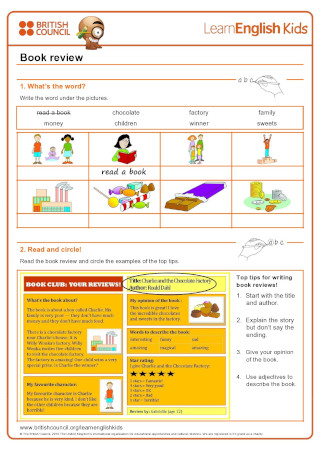
Kids Book Review
download now -
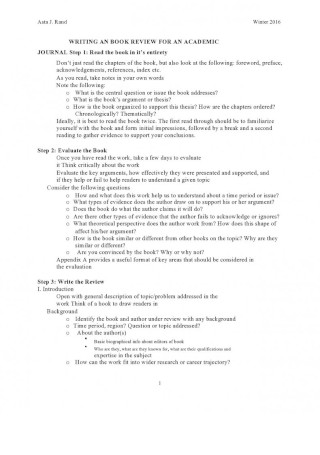
Academic Book Review
download now -
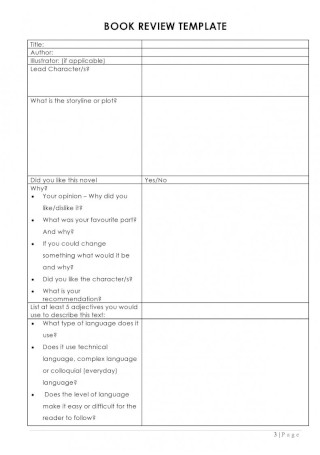
Simple Book Review Template
download now -
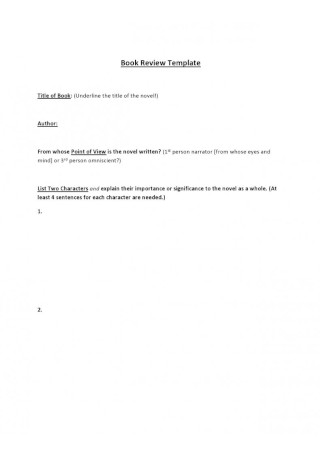
Basic Book Review Template
download now -
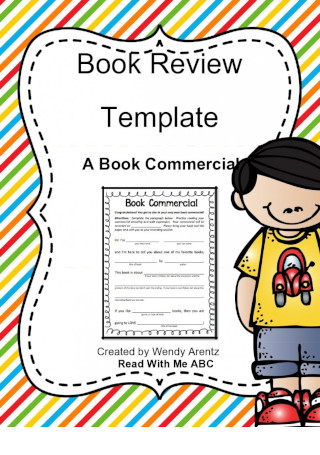
Commercial Book Review
download now -
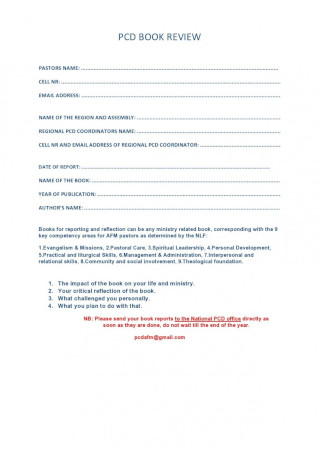
PCD Book Review
download now -
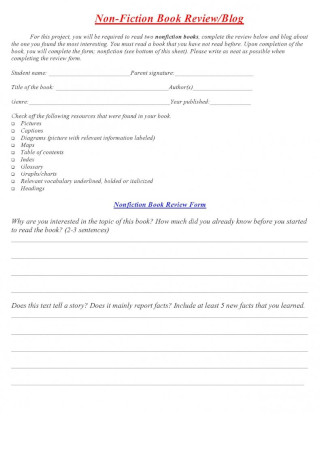
Non Fiction Book Review
download now -
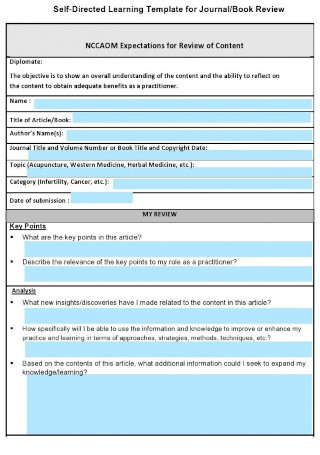
Book Review Form Template
download now -
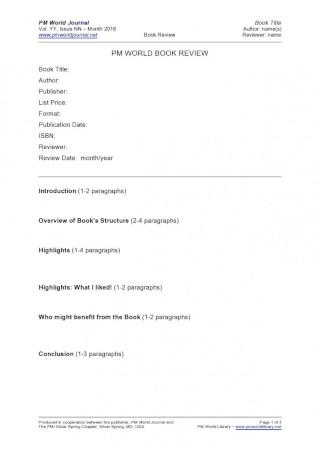
World Book Review
download now -
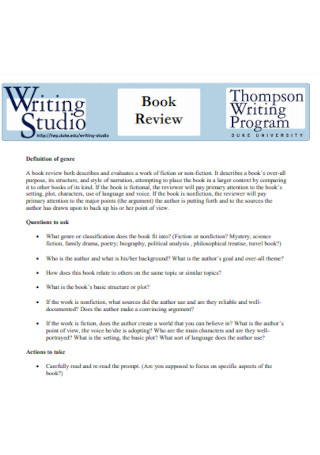
Book Review Original
download now -
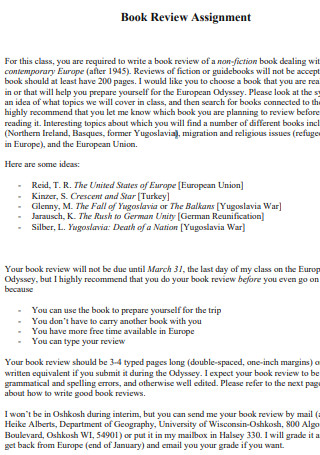
Book Review Assignment
download now -
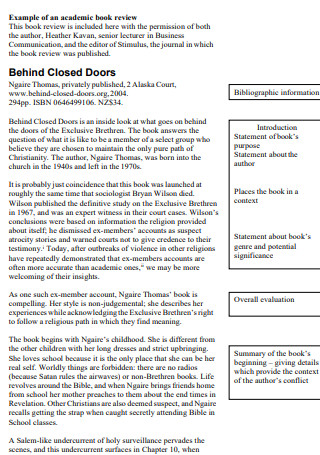
Academic Book Review Template
download now -
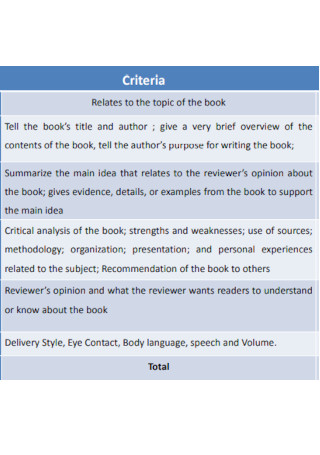
Book Review Criteria
download now -
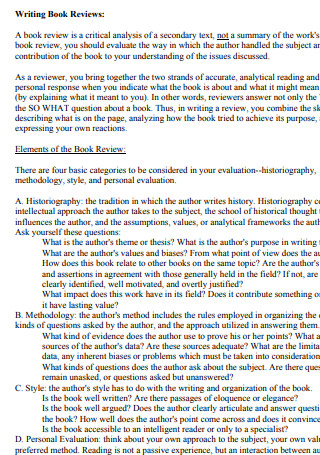
Element of Book Review
download now -
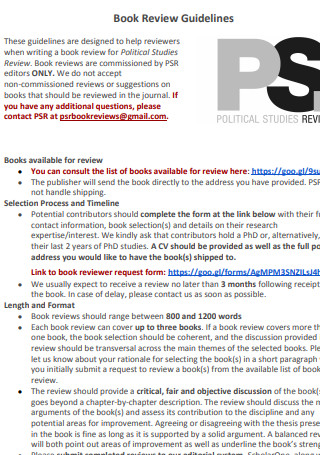
Book Review Guidelines
download now -
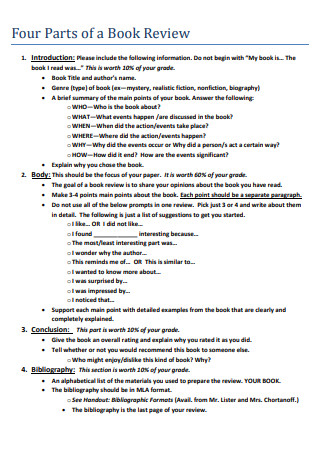
Four Parts of Book Review
download now -
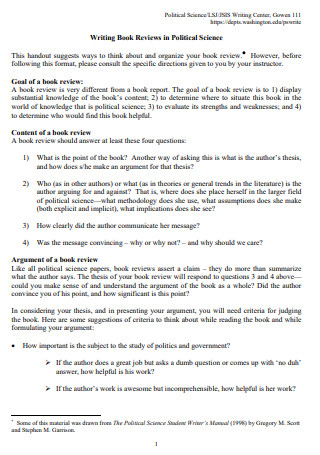
Book Reviews in Political Science
download now -
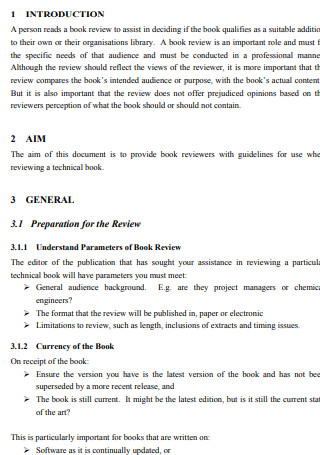
Book Review Guide
download now -
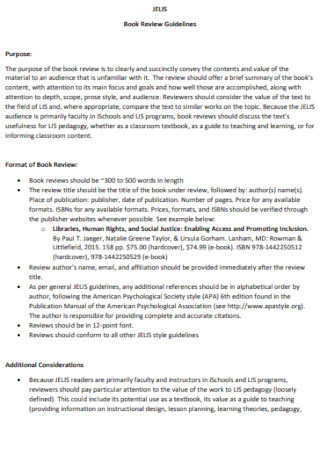
Book Review Guidelines Sample
download now -
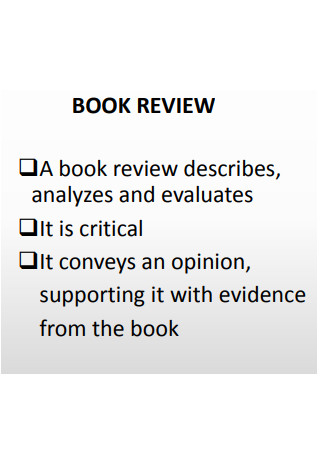
Writing Book Review
download now -
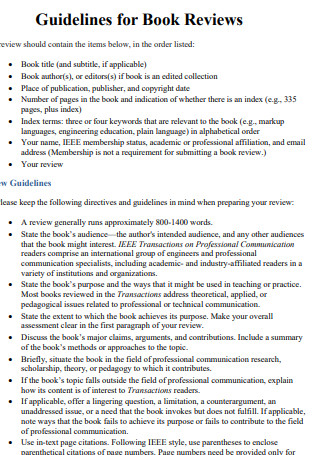
Author Guidelines for Book Reviews
download now -
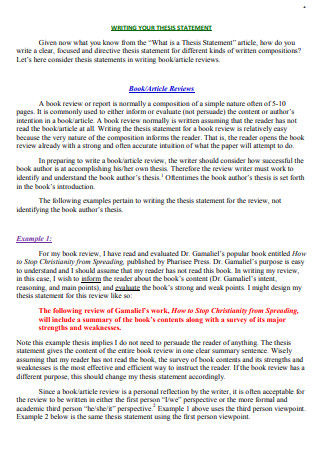
Thesis Statements for Book Reviews
download now -
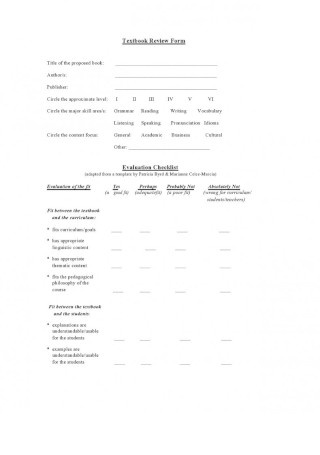
Textbook Review Form
download now -
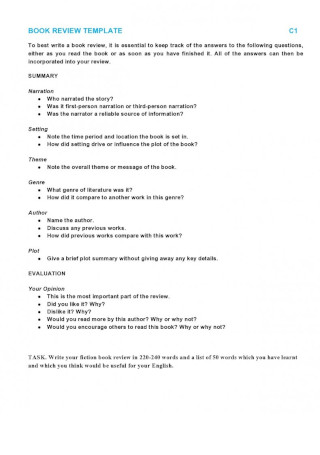
Professional Book Review Template
download now -
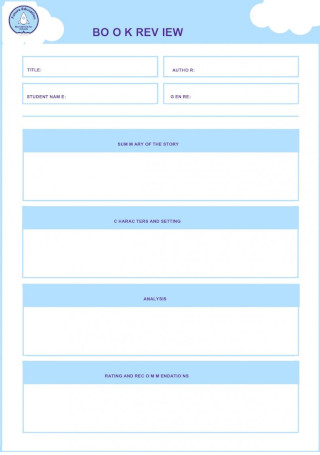
Blank Book Review Form
download now -
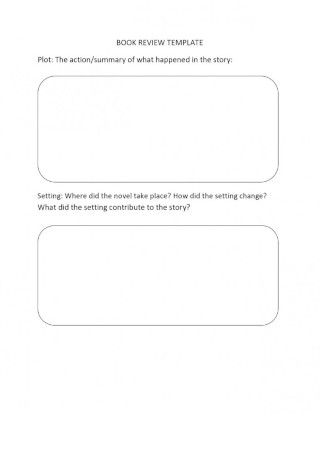
Basic Book Review
download now -
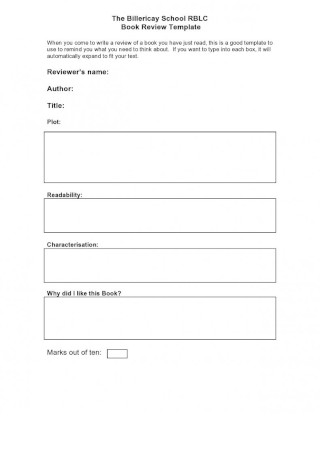
School Book Review Template
download now -
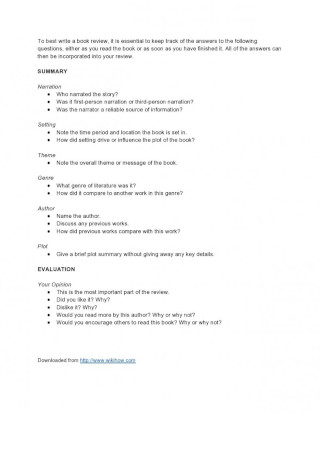
Formal Book Review
download now -
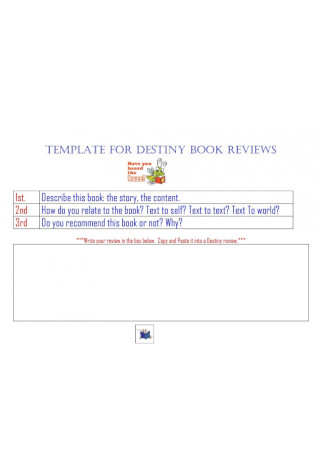
Template for Destiny Book Review
download now
True enough, he was able to come up with interesting theories. His interpretation painted a picture of the economic struggle of American farmers and industrial workers (as represented by the Scarecrow and Tin Man, respectively) at the turn of the 20th century. Littlefield proceeds to explain how the rapid changes the Industrial Revolution brought led to consequent social repercussions in an America that was growing and expanding; but not necessarily the type of growth that was ideal and inclusive. Certain sectors (e.g., the farmers of Kansas and other Midwest states) felt excluded or did not feel their plight was recognized by the government. It is exactly this type of intensive examination of literary work that a book review can produce.
What Is a Book Review?
A book review is a piece of writing that evaluates and scrutinizes the different parts of a book; and aims to provide a subjective but stimulating critique of a piece of literature. The goal of a book review is to unpack the story and uncover the message of a book, in order to justify an approval or disapproval.
According to an online article on Mother Jones, a book endorsed by a popular public figure, or recommended by famous celebrities such as Oprah and her famous book club, does not always translate to better book sales. This runs contrary to public perception that famous people like Oprah Winfrey can make a book an instant best seller. In some cases, an endorsement by the famous host’s book club may affect an author or book’s publicity and sales, but it is not always a guarantee of success.
Parts Of a Book Review
A book review may be short or long. For middle school and college undergrads, a book report or review could be an assignment for an English class. Yet for the bookworm, a book review can be a deeply personal piece of writing. Depending on how intense you plan to study the text and content, there are key parts that should be covered in a book review. Other secondary parts can either be retained or left out.
Areas to Critique In a Book Review
If you don’t know how to begin criticizing a book, there are several areas you can choose to focus on. The following are typical areas where you can either expand or limit your scope of review.
How to Write a Book Review
While keeping in mind the important areas to critique, you can now begin organizing your book review into one coherent and unified commentary. Once you have decided on what book to review, follow these simple steps and you’ll be on your way!
Step 1: Introduction
How you frame your introduction will entirely depend on you. There are a number of possible ways to start your book review. You can begin by asking or theorizing what the author’s purpose was in writing the book. What were the conditions surrounding him or her when the story was written? What do you think the writer’s intention was for his or her audience? You could provide a brief background into the author’s life and works; just to give the reader enough context. The introduction should set the stage, tone, and framework for your review.
Step 2: Summarize the Content Of the Book
Your main ideas should center on the content of the book and your commentary. Provide a condensed story of the book. Pick out the key events and identify the main characters. You should be able to tackle the major plots and turning points of the book.
Step 3: Analyze and Critique
Once you have established the central events of the book, you can start interpreting the story and analyzing its meaning. It helps to prepare an outline of the ideas you want to focus on, prior to writing your review. Choose one or a combination of the several areas of critique mentioned above. Make sure to establish your main concepts and substantiate them with sufficient supporting ideas.
Step 4: Conclude and Recommend
End your review by summarizing your key points; and by judging whether it was a good book overall, or was lacking in many ways and could have been better. You can also tie up any loose ends in your introduction and give them closure in your last few paragraphs. Lastly, state your approval or disapproval by rating the book. Was the read worth five stars? Is the book worth recommending to a friend? Will you read it again if given the chance?
FAQs
What is a good book review?
A good book review is structured, creative, and fair. It presents a thorough commentary of the main ideas contained in a book or written prose, covers the different aspects, and analyzes it rationally and innovatively. A good review does not judge only for the sake of criticizing; but offers a deeper analysis and new way of approaching the text or literature.
Why write a book review?
Book reviews help people make informed choices. They provide audiences with enough details about the positive and negative aspects of a book. In the same way, writing a book review is not only meant for other people’s consumption. But perhaps more profoundly, it allows you to examine your inner self. As you let your thoughts and ideas run free, you are also able to reflect on them but with a deeper and richer understanding.
Why is a book review important for students?
Writing a book review helps students hone vital skills needed not just to pass a course, but important skills for when they enter the ‘real world’. These include basic critical thinking, effective communication, creativity, logic, and reasoning. Reflecting and engaging in useful commentary about any written work can help develop and refine the student’s thought processes and creative flair.
What is the purpose of a book review?
The purpose of a book review is to help both the writer (of the review) and the audience understand the complexities of the story. It helps the person process the information and messaging in a novel or any piece of literature, but in a more meaningful and comprehensive manner. Many people check online book reviews first before purchasing a book. A thoughtful and well written book review can sometimes be enough to either persuade a reader or discourage him to buy the book.
What Henry Littlefield managed to do with his interpretation of the Wizard of Oz was to refuse to take something at face value. He chose to write with a greater sense of awareness and as a result, created a sound socio-economic and political commentary. It all comes down to learning how to pay attention and noticing the subtle symbolisms, contradictions, and metaphors in a book. Perhaps we can learn a few things from Henry Littlefield. If we can treat a novel or any written work as a vast field filled with buried treasure, who knows what we could find? Download a sample template and write a book review today!
